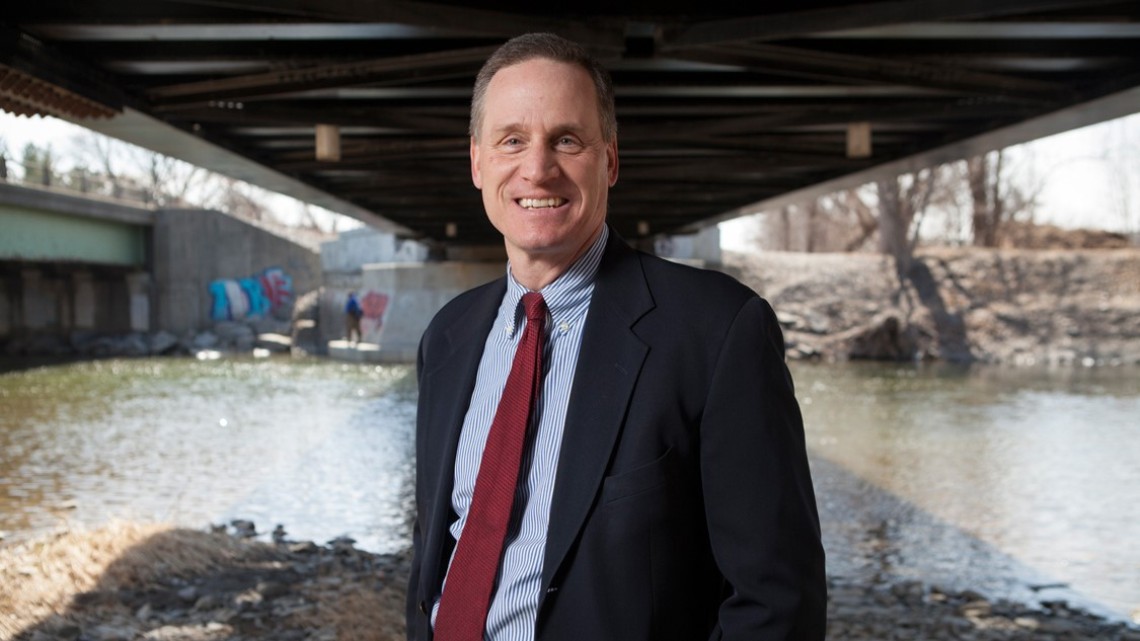
Rick Geddes is the founding director of the Cornell Program in Infrastructure Policy in the Cornell Jeb E. Brooks School of Public Policy. As it celebrates its tenth anniversary, CPIP will continue its focus on digital, physical, and social infrastructure.
News directly from Cornell's colleges and centers
Cornell Program in Infrastructure Policy celebrates 10 years of championing a better built environment
By Jim Hanchett
Ten years after it was founded with the goal of becoming the world’s leading academic center for infrastructure policy research and education, the Cornell Program in Infrastructure Policy (CPIP) is achieving that aim while attracting major, new financial support.
“The built environment runs on brain power,” CPIP founder Rick Geddes said. “Our focus during our first ten years is also our commitment for the next ten years: advance knowledge that improves the delivery, maintenance, operation and technological sophistication of physical, social and digital infrastructure.”
Highlights of CPIP’s tenth year include:
- Moving into its new home in the Cornell Jeb E. Brooks School of Public Policy. The move facilitates the inter-disciplinary research and academic programs that are a CPIP hallmark. Under Inaugural Dean Colleen Barry, the Brooks School is quickly becoming one of the nation’s pre-eminent public-policy institutions. “CPIP is a natural fit for Brooks,” Barry said. “We are proud of CPIP’s accomplishments and its growing influence in a critically important policy area.”
- Securing significant new financial support with a gift from Antin Infrastructure Partners, a leading private equity firm focused on infrastructure investments, based in London, Paris, New York, and Singapore. The gift will name a crucial leadership position, the CPIP Executive Directorship, and provide flexible funding to help the program grow and thrive over the next five years. Antin Managing Partner Mark Crosbie is a member of CPIP’s Board of Advisors. “Our corporate gift will help support Cornell’s premier program in infrastructure policy as a 21st-century leader,” Crosbie said. “Throughout history, technological advancement and societal change have been drivers of innovation, with infrastructure critical to facilitating progress for the benefit of society. Antin is committed to educating the next generation of infrastructure leaders to enable that progress.”
- Announcing a partnership with Hodes Weill, a leading, global capital advisory firm focused on real estate, infrastructure, and other real assets with offices in New York, Denver, Hong Kong, London, and Amsterdam. This partnership will launch the Infrastructure Allocations Monitor in Spring 2023, which will gauge institutional investor sentiment regarding investments in infrastructure.
- Preparing the next generation of industry and government leaders through its support of the Brooks School’s Infrastructure Policy, Management and Finance Fellows program. That program includes graduate students across Cornell and innovative classes that recently have had students developing policies to support self-driving cars in Ithaca, New York, promoting rooftop solar power installations in Puerto Rico, and making water treatment facilities resilient to climate change. Lecturer John Foote leads those classes and has been instrumental in CPIP’s growth. “Our students are taking on important roles in the infrastructure space and the feedback we are getting is they are well prepared to take on the challenges of infrastructure in the 21st century," Foote said.
- Hosting Biden Administration senior infrastructure adviser Mitch Landrieu for an internationally streamed program at the American Enterprise Institute, moderated by Geddes. CPIP also partnered with Centre for Smart Infrastructure and Construction at Cambridge University to sponsor an unprecedented conference for infrastructure thought leaders at Cornell Tech in New York City.
Sensing a need for a university program focused on infrastructure, Geddes founded CPIP in 2012. Then, through his research and congressional testimony, he helped push infrastructure policy issues to the national forefront at an auspicious time. The landmark $1.2 trillion Infrastructure Investment & Jobs Act of 2021, the $433 billion Inflation Reduction Act of 2022, and the 2022 $52 billion CHIPS and Science Act all included major changes in U.S. infrastructure policy.
Geddes is an economist, a member of Cornell’s Department of Economics, and a professor in the Brooks School. He researches the funding, financing, permitting, operation, and maintenance of heavy civil and social infrastructure, with a focus on the adoption of new technologies. His research has examined network-wide road pricing, infrastructure resilience, and innovative infrastructure financing via public-private partnerships.
From the start, industry leaders have supported CPIP’s efforts and several now sit on its advisory board, including Board Chair Stephen Beatty. Based in Toronto, he is KPMG’s Global Head of Infrastructure and the Chairman of Global Cities Center of Excellence.
“CPIP has done an outstanding job building the premier Advisory Board in the infrastructure field,” Beatty said. “We have business leaders and professional experts in finance, law, public policy, government, technology, construction management, security and academia who are available to students, faculty, and researchers to provide guidance on physical, social, and digital infrastructure. Board members display a commitment to advancing research, developing the next generation of infrastructure leaders, and assisting CPIP in its public outreach mission. This kind of support will ensure CPIP’s leadership role among academic institutions in infrastructure policy.”
Geddes and CPIP Executive Director Richard Coyle are confident that leadership role will broaden in the years ahead, including these 2023 initiatives:
- Research on a suitable policy framework to facilitate the reconstruction of Ukrainian infrastructure.
- Examination of how improved policy can accelerate infrastructure changes to achieve U.S. climate goals.
“The United States is facing inflation, volatile capital markets, and constricted labor markets. Globally, there is an extended land war in Europe, flooding in developing countries, and ongoing supply-chain problems. Improved infrastructure policy stands squarely at the center of all those challenges,” Geddes said. “Cutting-edge research, dynamic teaching, and academic engagement with key infrastructure stakeholders is more important than ever. As the nation’s premier infrastructure policy center, CPIP is poised to have even greater real-world impact.”
Jim Hanchett is assistant dean of communications and marketing for the Cornell Jeb E. Brooks School of Public Policy.
Media Contact
Get Cornell news delivered right to your inbox.
Subscribe
